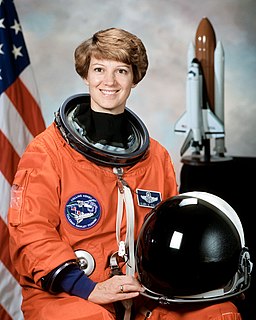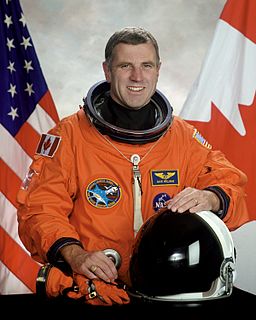A Quote by P. J. O'Rourke
Funding for the original manned Voyager Mars Program was scratched in 1968, before humans had gotten out of Low Earth Orbit. Mid-'60s plans for a Venus fly-by with astronauts actually flying by it met the same fate.
Related Quotes
By 2025 we expect new spacecraft designed for long journeys to allow us to begin the first ever crewed missions beyond the Moon into deep space. So we'll start by sending astronauts to an asteroid for the first time in history. By the mid-2030s I believe we can send humans to orbit Mars and return them safely to Earth. And a landing on Mars will follow and I expect to be around in see it.
One of the things that's really exciting from my perspective is that Canada is one of the major spacefaring nations. The list of our achievements is profound and significant, and it's not just in robotics, it's also in the life-sciences research experiments that take place on board and other space-science experiments. I'd love to see Canada go from being a major spacefaring nation in low-Earth-orbit missions to those beyond, making sure we're part of those missions to Mars - not just from a technology perspective, but sending humans into beyond-Earth orbit.
Having a moment of clarity was one thing; I'd had moments like that before. It had to be followed with a dedicated push of daily exercise. It's a trite axiom, but practice DOES make perfect. If you want to be a strong swimmer or an accomplished musician, you have to practice. It's the same with sobriety, though the stakes are higher. If you don't practice your program every day, you're putting yourself in a position where you could fly out of the orbit one more time.
Asteroids are deep-space bodies orbiting the Sun, not the Earth, and traveling to one would mean sending humans into solar orbit for the very first time. Facing those challenges of radiation, navigation and life support on a months-long trip millions of miles from home would be a perfect learning journey before a Mars trip.
Where we're operating is orbital adventures. We would offer five to seven days in low Earth orbit aboard our own spacecraft where customers would have the view of the Earth; get to experience really living in space, probably conducting some scientific investigations that we would piggyback onto those flights. So, they would have the whole experience, kind of a mini-experience of what professional astronauts have.


































